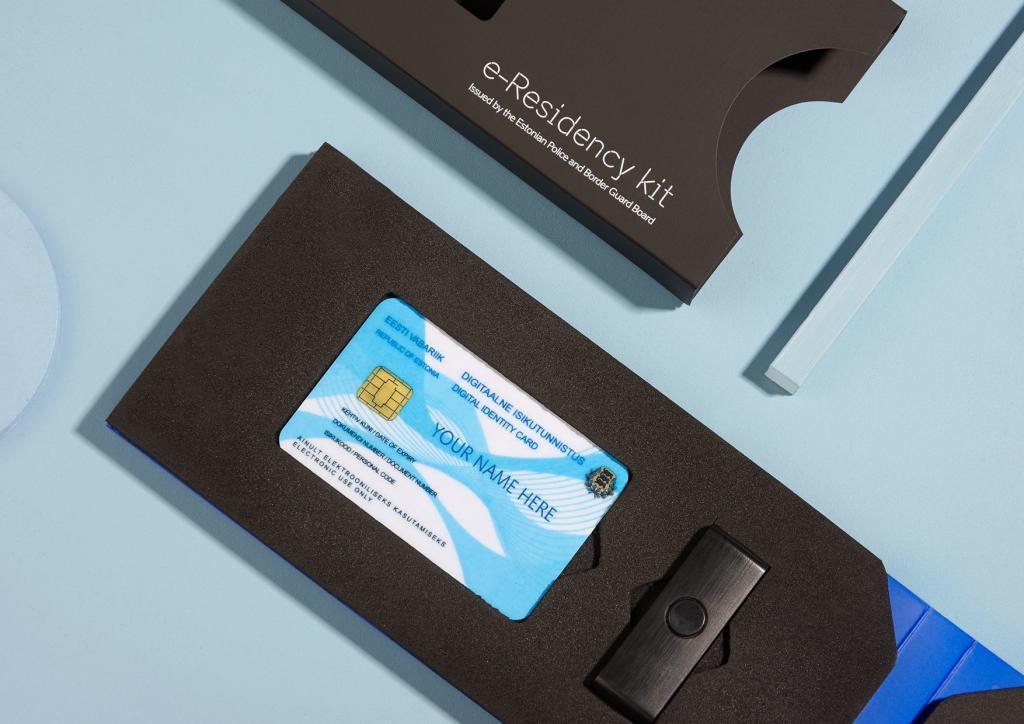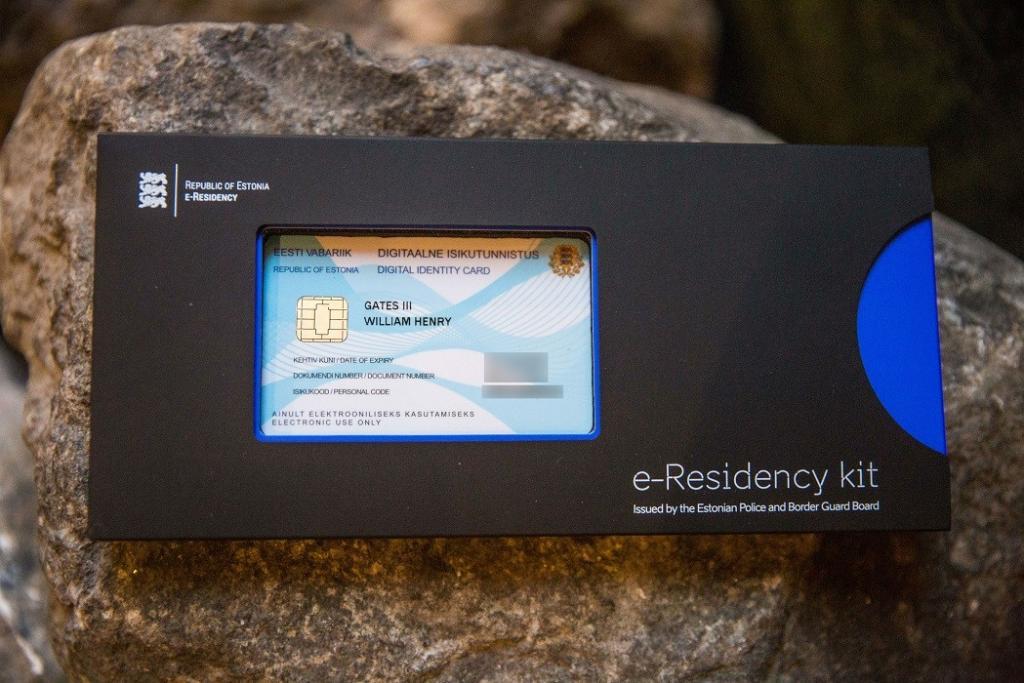Statistics Estonia has revealed that Estonia’s e-residents around the world have now generated more than €1 billion of economic activity through their Estonian companies; Adam Rang, who helped develop the e-residency programme, argues that this shows how well the programme is working despite concerns over banking.
Amid the doom and gloom of economic figures from around the world, there was one number that stood out last week as evidence of remarkable economic success.
Statistics Estonia revealed that Estonian companies run by e-residents have just surpassed €1 billion in revenues. That means Estonia’s e-resident community has a larger GDP, as it were, than 14 actual countries.
The e-residency programme was launched just over five years ago so that people who are neither citizens nor residents of Estonia can apply for an Estonian digital ID card and use it to establish and manage an Estonian company entirely online. As we can see from this new stat, e-residents have been making good use of this opportunity.
That might come as a surprise to some. It is often believed inside Estonia and among those considering whether to apply that e-residency is just a nice idea that does not quite work in practise. The biggest controversy has been around banking with many believing that e-residents cannot access banking for their companies.
The data tell a vastly different story though and we now have a more complete picture.
One in six new Estonian companies founded by e-residents
General data about all Estonian companies are publicly available, and Statistics Estonia can separate out the data based on which companies were started by e-residents. On top of that, the Estonian Tax and Customs Board regularly provides information about taxation, including how much of it comes from e-resident companies, while Deloitte has published assessments into the programme’s broader economic impact. Finally, the e-residency programme also publicly publishes up-to-date stats relating to the number of new applications for e-residency and the new companies e-residents have created.
From all this, we know that Estonia’s e-resident population has grown to more than 68,000 people around the world who have established nearly 13,000 new Estonian companies. In fact, one in six new Estonian companies founded last year came from e-residents abroad.

We now also know that in the first full year of the programme in open beta mode, which was 2016, their companies received a combined €72 million from customers around the world. Last year, that had grown exponentially to €532 million, which is more than half of their total combined revenues so far.
Boosting the Estonian economy
The reason total revenues have not been examined publicly until now is because the economic success of e-residency has been measured inside Estonia by the financial contribution that e-residents make to Estonia. That’s understandable because Estonians deserve to know what actual return they are getting on their investment in the programme so the focus has been on what e-residents have paid in the form of taxes and state fees, as well as their broader impact directly on the Estonian economy.
It is worth noting, though, that not all e-residents are required to pay taxes to Estonia. That is why tax revenues have been a useful indicator for the growth of economic activity, but certainly not a complete picture of how the programme is helping entrepreneurs around the world grow their companies.
A significant portion of those revenues have helped pay for Estonia’s development and boosted the Estonian economy. The Estonian Tax and Customs Board had already revealed last year that e-residents have paid more than €35 million directly to Estonia in the form of taxes and state fees, including more than €15 million last year alone. That is a 12% increase from the previous year. It is also far in excess of the cost of the e-residency programme to Estonian taxpayers and actually slightly higher than the target that the e-residency team set for itself. In addition, e-residents have made a far larger financial contribution to Estonia simply by buying services from Estonian companies that are physically based here.
Several fast-growing companies in Estonia dedicated to serving e-residents
An independent study by the international auditing firm, Deloitte, estimated that the economic impact on Estonia from e-residents to be many times greater than what they pay through taxation. Evidence of that here on the ground is not hard to find. There are several fast-growing companies in Estonia dedicated entirely to serving e-residents and providing jobs, which far outnumber the relatively small team at the e-residency programme itself. Those jobs are not just based in Tallinn either, but spread across Estonia.
I should point out here that I used to work at the e-residency programme, too, but left so I could return to business and help provide services to e-residents through our own Estonian company creation portal, Unicount. That would be a pretty strange career move were it not for the fact that I know how useful e-residency is for entrepreneurs around the world and I know what opportunities that creates for us here in Estonia.

E-residents make these contributions to Estonia because it is in their interests to do so. E-residency works and is helping them build successful companies online. Stats about the economic contribution from e-residents to Estonia are useful for Estonians to know (and a key motivator for Estonian policymakers to continue supporting the programme), but it’s the new revenue figure that shows how e-residents are building successful businesses.
Almost all e-residents can access some form of banking
If e-residents couldn’t access banking, they would be paying €0 taxes in Estonia because their revenues would also be €0, not €1 billion. The truth is that almost all e-residents can actually access some form of banking for their Estonian companies if they have a legitimate business and follow correct procedures that give their banking providers enough oversight of their activities. There are some notable exceptions, such as citizens and residents of jurisdictions deemed by the international community to be high risk and non-compliant with anti-money laundering and terrorism financing regulations.
But a large proportion of e-residents are single shareholder companies with easily trackable incomes, which means they can fairly easily open a bank account in Estonia (when travel is permitted). Even during this coronavirus crisis, there is a wide variety of online business banking options, such as TransferWise and Payoneer.
This is very far from the perception you would get from the media, which has focused on a very small proportion of e-residents that can’t open an Estonian bank account and either don’t like the alternatives. The reality is that e-residency is not for everyone, but that’s all right because a significant number of entrepreneurs around the world do benefit and we should simply ensure more people get the right advice about whether e-residency is right for them too.
Eliminate offline ID card pickups for e-residents
All this rapid growth is unlikely to last though. Restrictions on travel combined with a global economic crisis will make it more difficult than ever to build businesses or even collect an e-residency card. That is why we must work harder than ever here in Estonia to help entrepreneurs around the world build their companies.
Eight companies in Estonia, including us at Unicount, have jointly written a letter to the Estonian government explaining that we must find a way to eliminate offline ID card pickups for e-residents. This would significantly boost the number of people around the world who can start companies in Estonia and contribute to our country.

Eliminating the need to pick up an ID card is a huge challenge but also something the e-residency programme has always been incredibly supportive about. This crisis has made it clear, though, how urgently we think everyone across government should come together and implement a solution.
For now, Estonia should be proud of the €1 billion of business revenues that it has helped stimulate around the world by supporting entrepreneurs. E-residency works and we can continue to celebrate that.
The opinions in this article are those of the author. Cover: The e-residency card of Bill Gates, the co-founder of Microsoft Corporation (Estonia’s e-residency programme).

